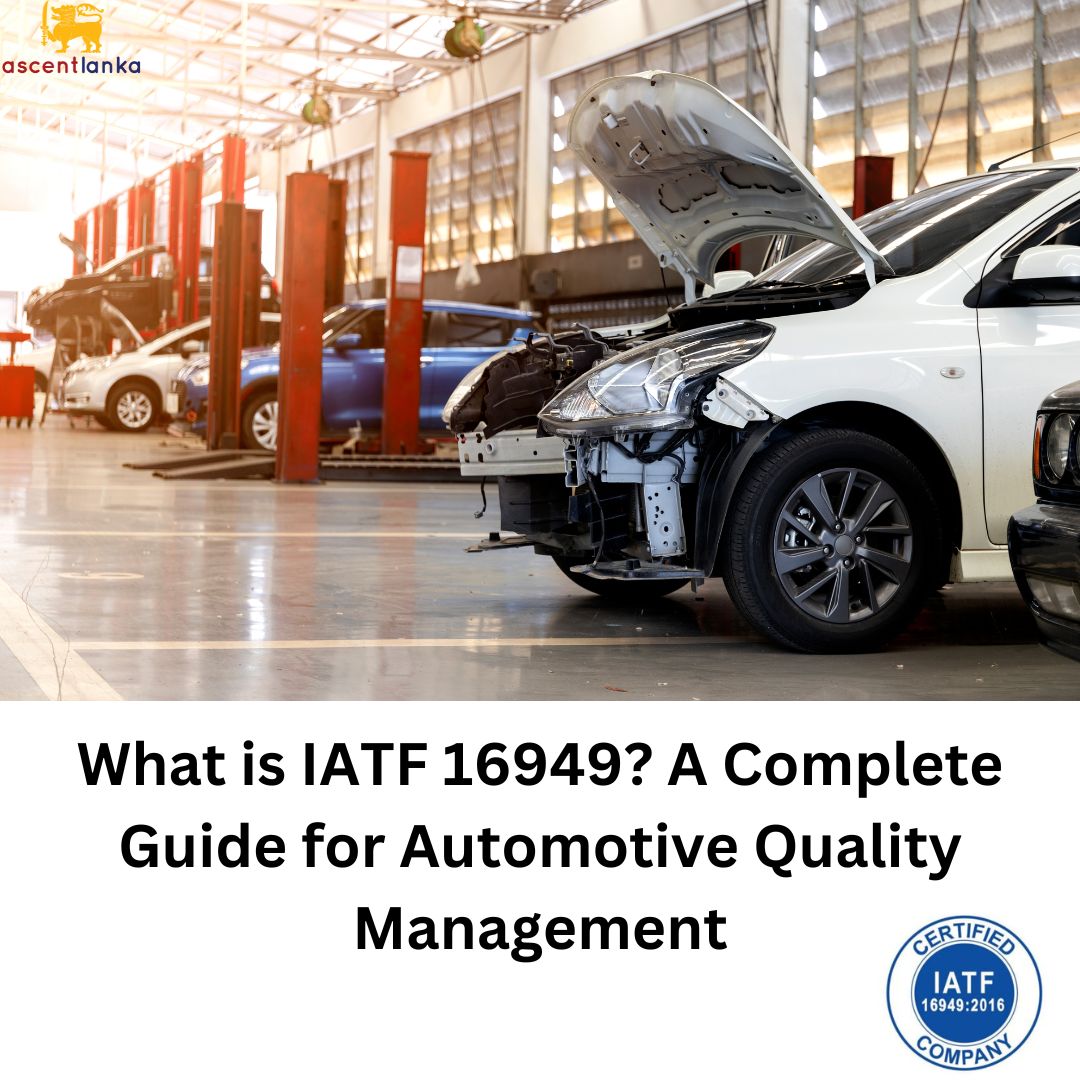Published: July 29, 2025
What is IATF 16949? A Complete Guide for Automotive Quality Management

In the rapidly evolving automotive industry, consistent product quality, efficiency, and continuous improvement are crucial for maintaining a competitive advantage. That’s where IATF 16949 comes into play — a globally recognized standard that harmonizes quality management system (QMS) requirements for the automotive sector.
What is IATF 16949?
IATF 16949 is a quality management system (QMS) standard specifically developed for the automotive sector. It was published by the International Automotive Task Force (IATF) in collaboration with the International Organization for Standardization (ISO). It is based on the structure of ISO 9001:2015, but includes additional automotive-specific requirements.
The goal of IATF 16949 is to enhance customer satisfaction through effective application of the system, including processes for continual improvement, defect prevention, and reduction of variation and waste in the supply chain.
IATF 16949 applies to all automotive production and relevant service parts organizations. It is mandatory for suppliers working with major automotive manufacturers such as Ford, General Motors, and BMW.
Why is IATF 16949 Important for the Automotive Industry?
- → Consistency Across the Supply Chain: Automotive OEMs work with thousands of suppliers worldwide. IATF 16949 ensures that all these organizations follow a unified set of quality standards, reducing inconsistencies and miscommunication.
- → Enhanced Customer Satisfaction: With customer satisfaction at its core, the standard helps reduce defects, improve product quality, and ensure timely delivery.
- → Risk Management and Defect Prevention: IATF 16949 places a strong emphasis on risk-based thinking and preventive measures, enabling companies to identify potential issues before they occur.
- → Operational Efficiency: By reducing variation and waste, the standard enables organizations to optimize their resources and enhance internal processes, ultimately impacting their bottom line.
- → Global Recognition: Certification to IATF 16949 demonstrates a company's commitment to quality and makes it a preferred supplier for global automotive giants.
Key Features of IATF 16949
- → Integration with ISO 9001: Builds upon ISO 9001:2015 with added automotive-specific requirements.
- → Product Safety: Increased focus on product safety and customer-specific requirements.
- → Risk-Based Thinking: Proactive identification and mitigation of risks.
- → Supplier Development: Encourages continual development of the supply chain.
- → Warranty and Recall Management: Better handling of warranty issues and field failures.
- → Embedded Software Considerations: Takes into account the increasing use of software in vehicles.
Who Should Get IATF 16949 Certified?
IATF 16949 applies to any organization involved in the design, development, production, installation, or servicing of automotive-related products. This includes:
- → Component manufacturers
- → OEM parts suppliers
- → Automotive assembly plants
- → Distributors and logistics providers (if they impact product quality)
If your organization is a part of the automotive supply chain, certification not only improves your processes but also opens doors to work with leading automotive brands globally.
Steps to Get IATF 16949 Certified
- → Understand the Requirements: Review the IATF 16949 standard in detail and compare it with your current QMS.
- → Gap Analysis: Conduct an internal audit or hire a consultant to identify gaps between current practices and IATF 16949 requirements.
- → Implement Necessary Changes: Close the identified gaps, implement new controls, and train your workforce.
- → Internal Audit: Perform an internal audit to ensure readiness for the certification audit.
- → Management Review: Conduct a management review to evaluate the performance and compliance of the QMS.
- → Choose a Certification Body: Select an IATF-approved certification body and schedule your Stage 1 (documentation) and Stage 2 (implementation) audits.
- → Certification Audit: The certification body assesses your QMS against IATF 16949. If compliant, you’ll receive the certificate.
- → Surveillance and Recertification: Annual surveillance audits and recertification every three years are required to maintain compliance.
Benefits of IATF 16949 Certification
- → Increased Credibility: Demonstrates adherence to the highest quality standards in automotive manufacturing.
- → Global Market Access: Opens the door to working with tier-1 suppliers and OEMs worldwide.
- → Improved Product Quality: Emphasizes defect prevention, leading to better end-user satisfaction.
- → Lower Operational Costs: Waste reduction and more efficient use of resources.
- → Employee Engagement: A structured QMS improves accountability, training, and workforce motivation.
Challenges in Implementing IATF 16949
Implementing IATF 16949 is a comprehensive effort that involves every department in the organization. Some common challenges include:
- → Understanding and applying risk-based thinking
- → Managing complex documentation
- → Aligning existing processes with customer-specific requirements
- → Developing a culture of continuous improvement
Working with experienced consultants can help overcome these hurdles and streamline the path to certification.
Why Choose Ascent Lanka for IATF 16949 Certification Support?
Ascent Lanka is a leading consultancy in Sri Lanka specializing in ISO and IATF certifications. With over a decade of experience, we offer end-to-end support — from initial gap analysis and documentation to internal audits and liaison with certification bodies. Our team of qualified experts ensures a smooth, cost-effective, and efficient certification journey.
We don’t just help you meet the requirements — we help you build a robust quality culture. Our se Contact us today →


Leave a comment below: